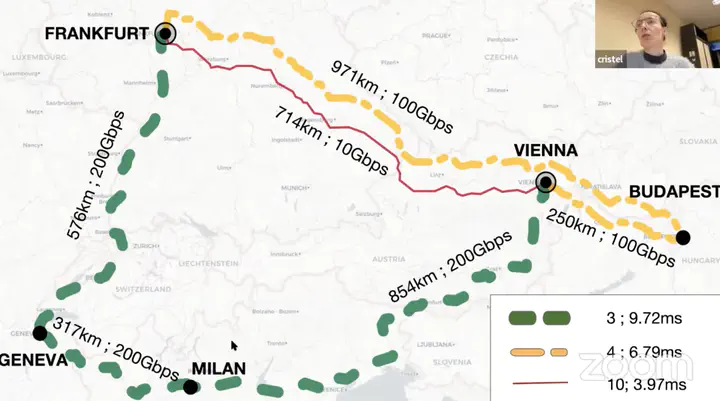Multi-constrained paths with segment routing and the detection of forwarding detours

With the growth of demands for quasi-instantaneous communication services such as real-time video streaming, cloud gaming, and industry 4.0 applications, multi-constraint Traffic Engineering (TE) becomes increasingly important. While legacy TE management planes have proven laborious to deploy, Segment Routing (SR) drastically eases the deployment of TE paths and thus became the most appropriate technology for many operators. The flexibility of SR sparked demands in ways to compute more elaborate paths. In particular, there exists a clear need in computing and deploying Delay-Constrained Least-Cost paths (DCLC) for real-time applications requiring both low delay and high bandwidth routes. However, most current DCLC solutions are heuristics not specifically tailored for SR.
In this work, we leverage both inherent limitations in the accuracy of delay measurements and an operational constraint added by SR. We include these characteristics in the design of BEST2COP, an exact but efficient ECMP-aware algorithm that natively solves DCLC in SR domains. Through an extensive performance evaluation, we first show that BEST2COP scales well even in large random networks. In real networks having up to thousands of destinations, our algorithm returns all DCLC solutions encoded as SR paths in way less than a second.
Segment routing, route aggregation and other TE techniques may introduce forwarding detours in an autonomous system. In the second part of the talk, I’ll provide leads on how to detect forwarding detours. We study how traffic flows inside ASes. In case of detours, the forwarding routes do not match the best available routes, according to the internal gateway protocol (IGP) in use. We reveal such forwarding detours in multiple ASes.